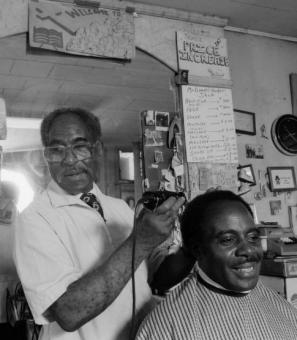The Potomac's Houseboats of Ill Fame
If you thought pirates were the only ones able to get into trouble on the water, you’d be wrong. At the turn of the twentieth century, the Potomac River was full of boats – or arks as they were called – that provided all sorts of illicit temptations for parties that were so inclined. While efforts were made to enforce the laws of Virginia, Maryland and the District, the arks’ ability to float downriver to avoid authorities made them a persistent problem.[1]
As Virginia’s Governor wrote to his counterpart in Maryland in 1907, he wanted to bring “speedy justice” to those who were “openly violating Virginia laws of gambling, liquor selling and carousing on the Sabbath day.”[2] However, that proved difficult since the arks could easily move back and forth between Virginia, Maryland and D.C. waters. As a result, the people of Alexandria were “compelled to receive in their community the scum and filth of Washington city”[3] when passengers from the party barges decided to come ashore in Alexandria.
Apparently the Governor chose not to acknowledge that many of the arks’ patrons were not actually from out-of-state but were Virginians themselves. The Governor may have been equally hesitant to admit that there was much more happening on the river, besides gambling and drinking. Indeed, if people wanted to find a house of “ill-repute” around Alexandria, they might have been better off looking for a houseboat. Despite rarely being mentioned in the press, prostitution was a burgeoning business on the Potomac in the late 19th and early 20th centuries.
Considering the times, it’s probably not a big surprise that the prostitution arks were not widely covered. As Jane Addams, a leader in social work and women’s rights, said, “Prostitution is protected by a thick hedge of secrecy.”[4] Addams further noted “the harlot” was seen as a source of revenue and entertainment for men in government, while “decent tax-payers…refuse to acknowledge her existence.”[5] Whether leaders wanted to acknowledge it or not, the proliferation of sex workers in the area had grown steadily since the Civil War.
At the beginning of the Civil War, there were 450 brothels in Washington. Just a year later there were 5,000 sex workers in Washington, and 2,500 in Georgetown and Alexandria, as the women flocked to where the soldiers would be.[6] Many ended up staying after the war and moved to the water.
When pollution cut into the fishing industry, sex workers were able to buy and operate out of boats that were originally homes for fishermen along the Potomac.[7] They enjoyed a flourishing business in the harbor.[8] The arks would communicate to warn each other of police raids and would float to where the police could not navigate the shoals, thus keeping their businesses afloat.[9] When, the D.C. Harbor Police implemented barricades in Washington Harbor, which was growing “fetid,” the floating brothels simply headed downriver toward Alexandria.[10]
For a time, Alexandria was, quite literally, a safe harbor thanks to politicians and the influential gentry, and for the boats that moved even further downriver, the police of Maryland and Virginia were too busy with oyster pirates to try and police the floating brothels.[11] Bull Town Cove, one of the largest “ark cities” on the boundary between Prince George’s County and Charles County was surrounded by farmland, providing a buffer from the law.[12] Many of the arks also tended to gather around military bases, since half the trade came from military men. [13]
When law enforcement couldn’t catch the brothels themselves, authorities tried other tactics like barring steamboats, which transported customers to the houseboats, from landing at the city’s wharf.[14] But nothing seemed to stop the operation of the oldest profession on the river, not even a bad bout of weather.
In 1905 – in one of the few occasions where it wrote about the arks of ill repute – the Alexandria Gazette described an incident where one of these houseboats became untethered during a storm. Under the headline “AQUATIC TEMPTATIONS!!!,” the article read, “She rode out the gale-like disturbance as safely as the Ark of the Bible.”[15] The article was sure to note that the storm didn’t mean the party on board stopped as small boats continued to escort patrons on and off throughout the day and night, and that the owner, “Madam Rose,” already had a new boat being built.[16]
Madam Rose’s boat was the only two-story boat with four girls in St. Mary’s County, and was the only one of its kind.[17] Where the brothels on land could have anywhere between two to 18 women working in them,[18] on the river, there was often wasn’t a single “madam.”[19] Each woman could run her own ark (especially when they were so cheap), and women with seniority would have a blue trim, blue roof, and blue shutters (normally the women would have red).[20]
According to Admiral Frederick Tilp, a historian of the Old Town waterfront, there was a sharp decline in the number of arks around 1927.[21] Surveyors for the George Washington Memorial Parkway, which would open in 1932, made note of them and Public Health officers and newspapers editorials pressured agencies to shut down the houseboats that were ruining the picturesque view for the parkway.
The Great Depression and World War II granted sex workers a break from the scrutiny, but by 1960 the arks were “either dragged ashore and abandoned or burned by the harbor police.” Evidence of the older boats hadn’t completely disappeared, though. In the fall of 1992, workers tasked with demolishing an old marina office in the Old Town Yacht Basin discovered one of the arks sitting in the dirt.[22] What had appeared as a shack was actually one of the Potomac arks from around 1900, according to city historians. The boat was given to the Alexandria Seaport Foundation to restore as a part of their proposed maritime heritage center.[23]
They did not know anything about this particular boat, but given the volume of the boats of “ill fame” at the time, it probably had a brush with the Potomac’s sordid past.
Footnotes
- ^ On occasions when they were caught, the crews of these “floating Monte Carlos” were most often fined for being a “nuisance” to the public. See “Fine Fifty Dollars: Proprietor of Ark Takes Appeal to Corporation Court,” Alexandria Gazette, Sept. 18 1913.
- ^ Ibid.
- ^ “The ‘Ark’”, Alexandria Gazette, July 10, 1907.
- ^ “Church and Social Evil: Speech of Noted English Philanthropist at Men and Religion Towards Congress,” Alexandria Gazette, April 23, 1912.
- ^ “Church and Social Evil: Speech of Noted English Philanthropist at Men and Religion Towards Congress,” Alexandria Gazette, April 23, 1912. Papers were willing to make an exception to their silence on the subject when condemning the practice, like the Gazette’s lengthy article from January 11, 1917 about on how dancing leads to prostitution. Professor Harry Stribes, “a renowned champion dancer and author of many noted society dances,” is quoted in the article, saying, “I do not think a woman can waltz virtuously and waltz well, for she must yield her person completely to her partner. My advice to my daughter, if I had one, would be ‘do not let any man encircle your waist until you are married and then only your husband.’ I can safely say that four-fifths of those who are now prostitutes in the United States were ruined in the ballroom. You will generally find that a prostitute is the perfect dancer.”
- ^ Canden Schwantes, Wicked Georgetown: Scoundrels, Sinners, and Spies, (Charleston, SC: The History Press, 2013), 79-84.
- ^ Frederick Tilp, This Was Potomac River, (1978), 305-308.
- ^ Ibid.
- ^ Ibid.
- ^ Michael Lee Pope, Wicked Northern Virginia, (Charleston, SC: The History Press, 2014), 127-131.
- ^ Tilp, This Was Potomac River, 306.
- ^ Pope, Wicked Northern Virginia, 129.
- ^ Ibid.
- ^ “Wharf Privileges Denied,” Alexandria Gazette, Sept. 18, 1906.
- ^ Tilp, This Was Potomac River, 307
- ^ Ibid.
- ^ Ibid.
- ^ Thomas P. Lowry, The Story Soldiers Wouldn’t Tell: Sex in the Civil War, (Mechanicsburg, PA: Stackpole Books,1994), 73-75.
- ^ Tilp, This Was Potomac River, 307
- ^ Ibid. 306-307
- ^ Ibid. 308
- ^ Paul Hodge, “Alexandria Workers Find Relic of the Potomac's Infamous Past.” The Washington Post (1974-Current file), Feb 18, 1993.
- ^ Paul Hodge, “Alexandria Workers Find Relic of the Potomac's Infamous Past.” The Washington Post (1974-Current file), Feb 18, 1993.


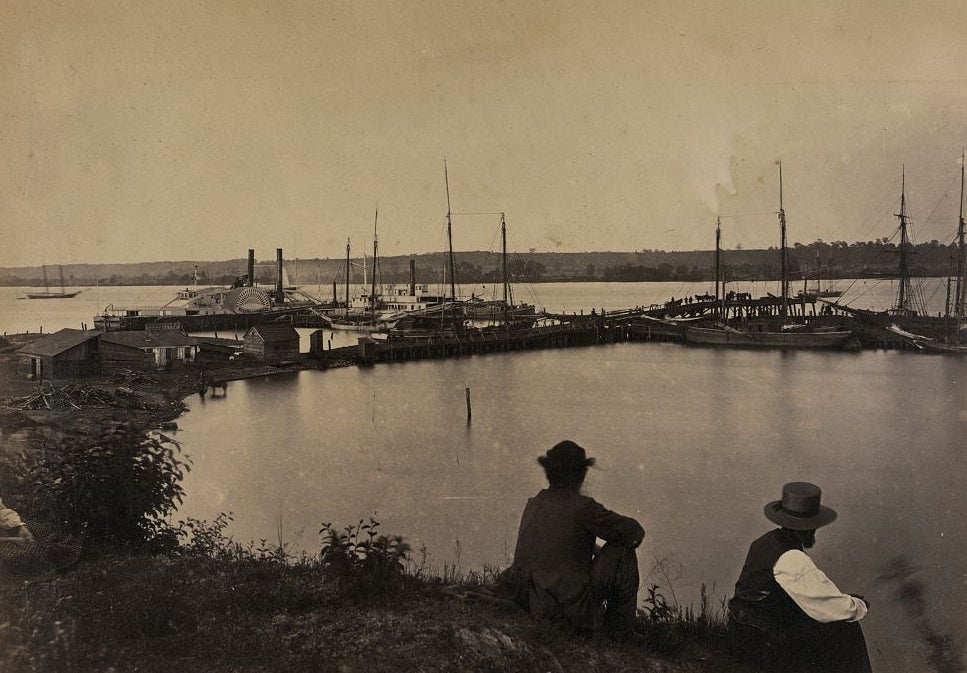
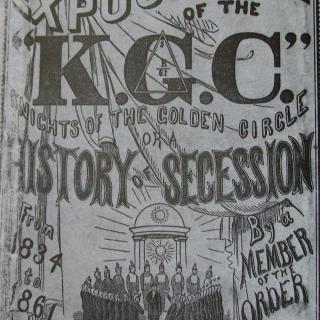
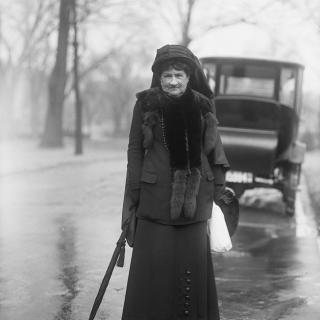
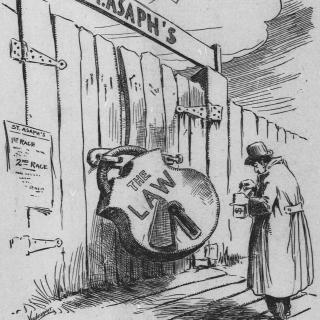
![Sketch of the mythical fuan by Pearson Scott Foresman. [Source: Wikipedia]](/sites/default/files/styles/crop_320x320/public/2023-10/Goatman_Wikipedia_Faun_2_%28PSF%29.png?h=64a074ff&itok=C9Qh-PE1)











